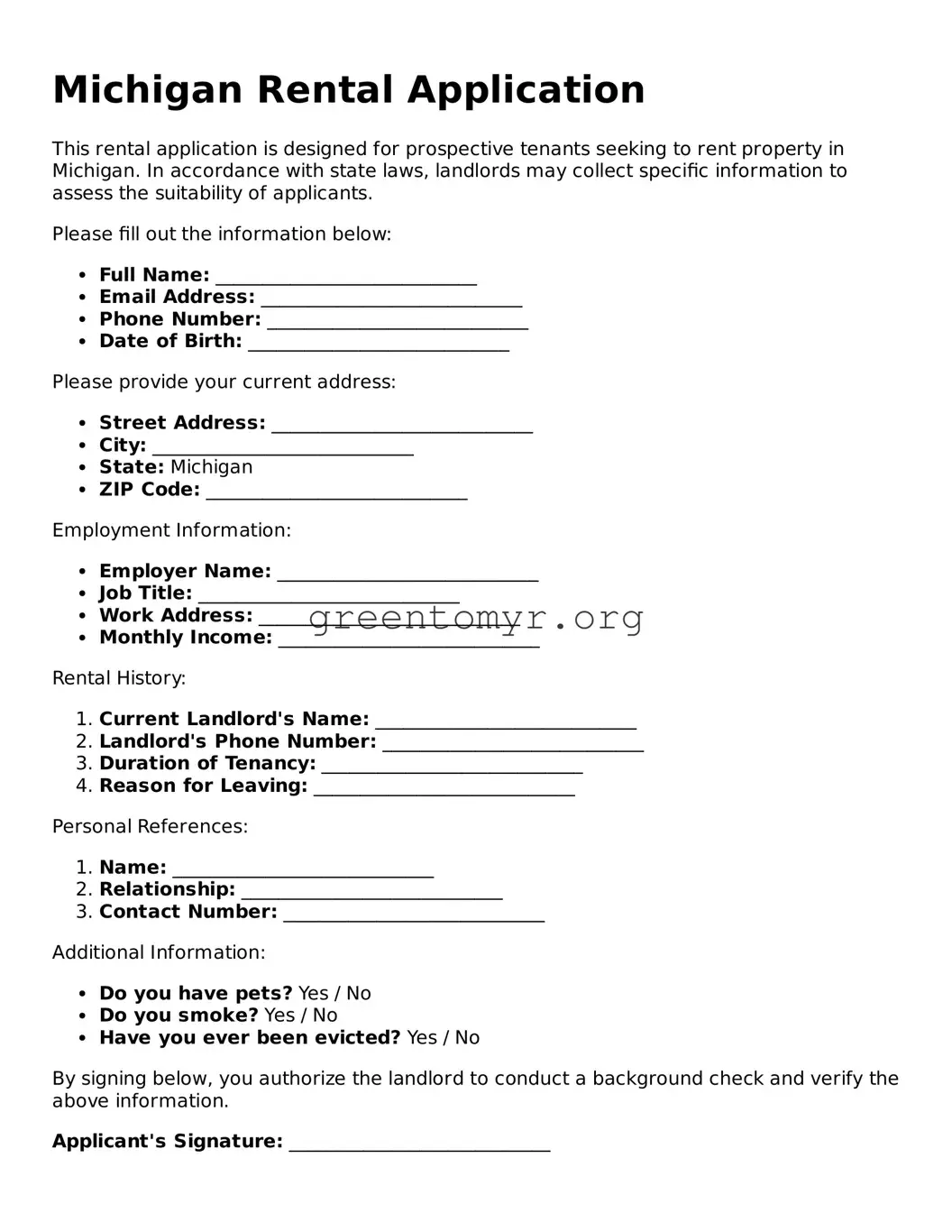Filling out a rental application form can often feel daunting. It's crucial to get it right, as small mistakes can impact your chances of securing a rental property. Here are ten common errors people make when filling out the Michigan Rental Application form.
One of the most frequent issues is leaving sections blank. Applicants may forget to fill out their employment history or contact details. Each piece of information helps the landlord paint a complete picture of your reliability as a tenant. Always double-check to ensure no vital sections are overlooked.
Another mistake involves inaccurate contact information. Providing the wrong phone number or email address can make it difficult for landlords to reach you. Ensure that all your contact details are correct and formatted clearly. A simple typo can lead to missed opportunities.
Some applicants underestimate the importance of providing complete employment history. Landlords often look for stability and reliability in their tenants. Failing to list past jobs or gaps in employment without explanation can raise red flags. Be honest and thorough in this section.
Also, watch out for financial details. Many people rush through their income verification or fail to include necessary documents, such as pay stubs or bank statements. It’s beneficial to clearly outline your income sources to demonstrate that you can meet the rent payments.
A common oversight occurs with the references section. Filling the form with references that aren't familiar with your renting history or credentials can backfire. Choose reliable references who can vouch for your character and rental behavior. It's also a good idea to ask them in advance if they’re willing to provide a reference.
Many applicants overlook the significance of thorough background checks. Some individuals assume that their credit history is irrelevant. However, landlords often run credit checks to gauge financial responsibility. Being upfront about any past financial issues may be beneficial as it shows honesty.
Another error is not reading the fine print. Some people don’t take the time to review the application’s terms and conditions. Understanding fees, deposits, or pet policies can save you from future misunderstandings. Catching these details early can lead to a smoother renting experience.
A lack of professionalism in presentation can also hurt candidates. Submitting a disorganized or messy application reflects poorly on one’s attention to detail. Take care to present your application neatly, whether it's handwritten or typed, to make a good impression.
Similarly, neglecting to sign and date the application is a mistake that can easily delay the process. Make sure all required signatures are present and that dates are clearly noted. An unsigned application can be immediately disregarded.
In summary, carefulness and attention to detail are crucial when filling out a rental application form. By avoiding these ten common mistakes, you can significantly improve your chances of being selected as a tenant. After all, securing a rental property is an important step toward establishing a comfortable home.
